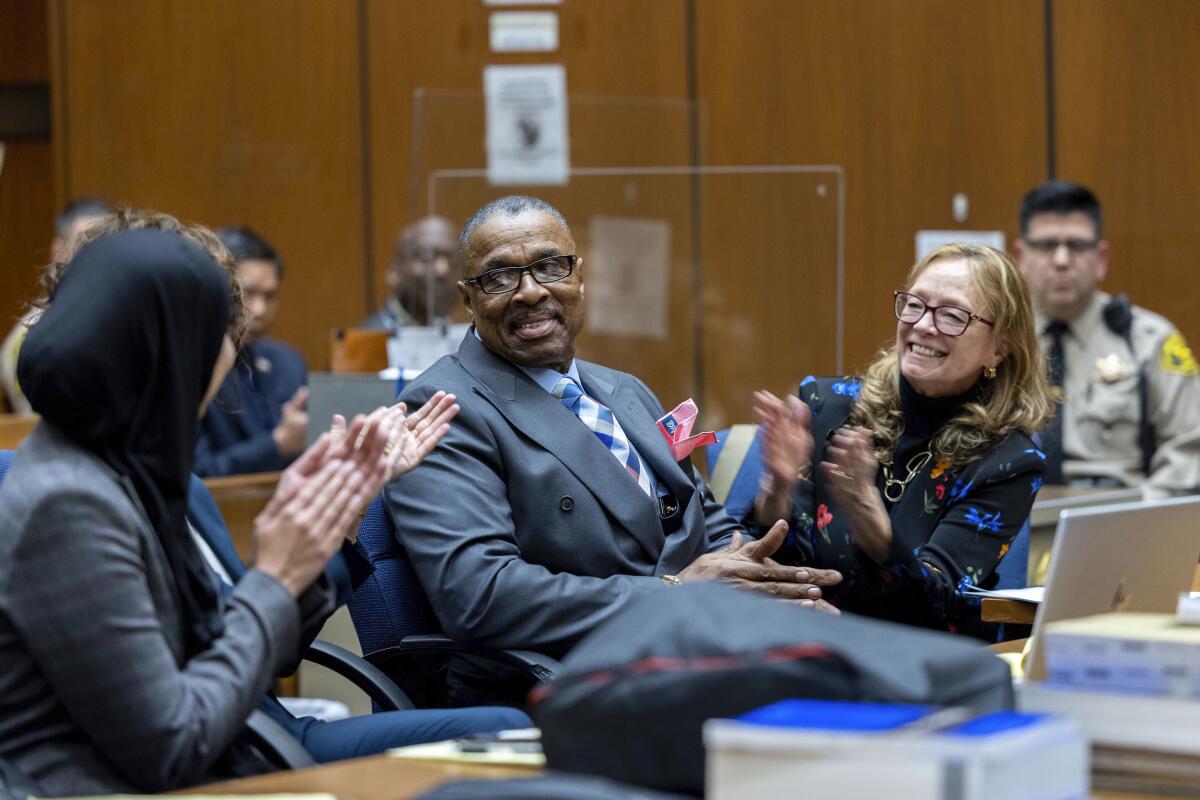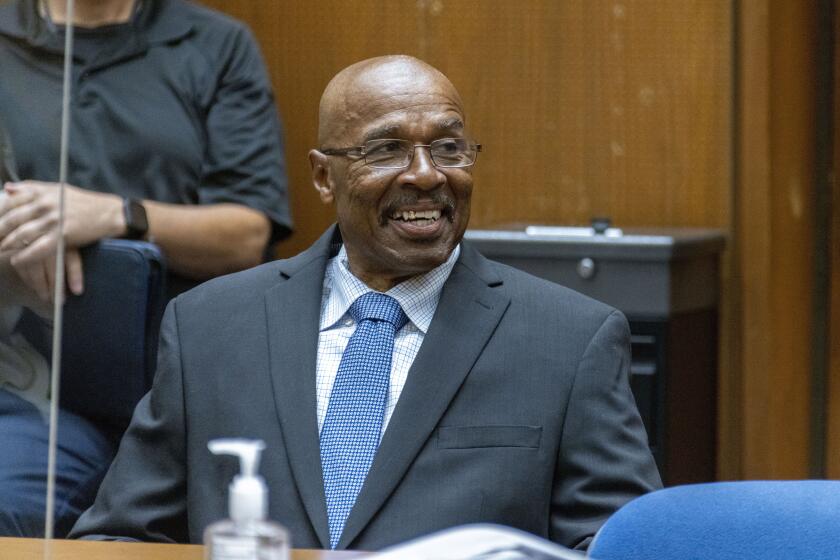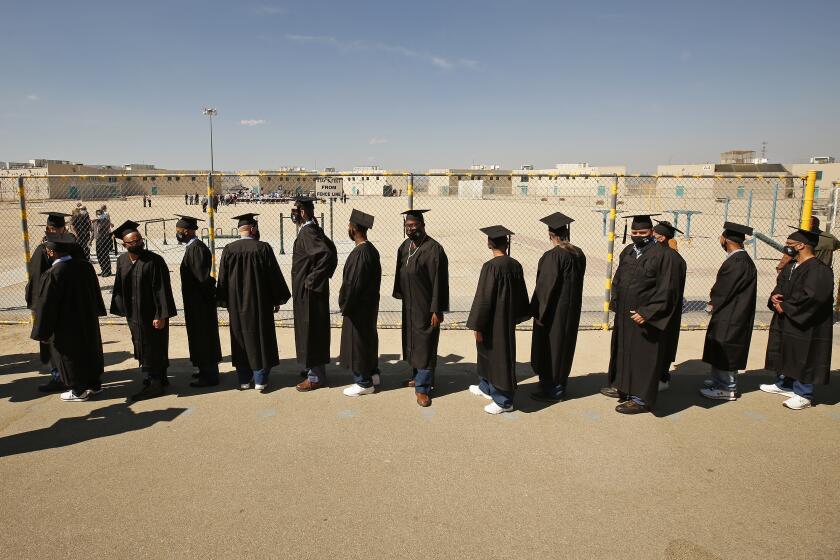L.A. man imprisoned for 38 years after wrongful murder conviction is found innocent

- Share via
A Los Angeles man who spent 38 years in prison did not commit the murder that had kept him locked up for decades and nearly landed him on death row, a judge ruled.
Maurice Hastings, 69, was freed in October after a Los Angeles County Superior Court judge vacated his conviction and sentence of life without parole. On Wednesday, the judge, William C. Ryan, found Hastings “factually innocent” of the 1983 murder of Roberta Wydermyer from Inglewood.
Hastings was cleared due to DNA evidence that ruled him out as a suspect and instead pointed to a man convicted of raping and killing another woman. That man, Kenneth Packnett, was sentenced to 56 years in prison and died in 2020, according to the Los Angeles County district attorney’s office.
“Maurice Hastings survived a nightmare,” Dist. Atty. George Gascón said in a statement. “He spent nearly four decades in prison exhausting every avenue to prove his innocence while being repeatedly denied. But Mr. Hastings has remained steadfast and faithful that one day he would hear a judge proclaim his innocence.”
Hastings maintained his innocence throughout his time in prison. In 2000, he sought a test of DNA evidence collected from Wydermyer’s body, but the district attorney’s office denied his request.
He finally received a test in June after he submitted a claim to the to the office’s Conviction Integrity Unit. That test determined that semen recovered during the autopsy was not from Hastings.
The wrongful conviction and imprisonment of Maurice Hastings for nearly four decades underscores the justice system’s responsibility to be careful when prosecuting defendants and the importance of reopening cases when exonerating evidence appears.
Last year, Hastings was in a men’s prison in Chino when he received a phone call that he was going to be set free after 38 years.
“I was really overwhelmed. It was kind of unreal,” he said at a Tuesday news conference. “In a sense, you want it to be true, but then you don’t want to be disappointed. I’ve been disappointed.
“I had tears. I asked, ‘Could this be it? Could this be the end?’ I was very emotional,” Hastings said at the news conference, where the district attorney’s office announced it would be joining his attorneys from the Los Angeles Innocence Project at Cal State L.A. in asking the court to officially clear his name.
Wydermyer, 30, was making a late-night trip to a supermarket when she was robbed, sexually assaulted and shot in the head. Her body was found in the trunk of her vehicle.
Wydermyer’s husband and his friend said they had seen someone driving her stolen car.
Hastings’ first trial ended in a deadlocked jury. The second trial lasted four months and included more than 100 witnesses and nearly 300 exhibits. That jury deliberated for two weeks before convicting him of murder and of attempting to murder Wydermyer’s husband and his friend.
He only barely escaped being sent to death row, and was instead sentenced to life in prison without parole in 1988.
Piggybacking on California’s ‘Fair Chance’ law, L.A. County launches several programs to urge employers to hire more formerly incarcerated people.
Hastings thanked God and the Los Angeles Innocence Project during Tuesday’s news conference at Cal State L.A., where he was joined by Gascón. He called the Innocence Project a blessing.
“I know it’s going to bless others that are after me,” he said. “There are a lot of men and women that are probably in my situation. It’s important that we can start working on justice in the society.”
Gascón told Hastings: “I’ve talked to you multiple times and not once have I seen a scintilla of anger or hate. I think that speaks volumes to you as a human being.”
The district attorney called Hastings gracious and forgiving in the face of injustice.
“The evidence in this case should have been tested 20 years ago,” Gascón said.
More to Read
Sign up for Essential California
The most important California stories and recommendations in your inbox every morning.
You may occasionally receive promotional content from the Los Angeles Times.













